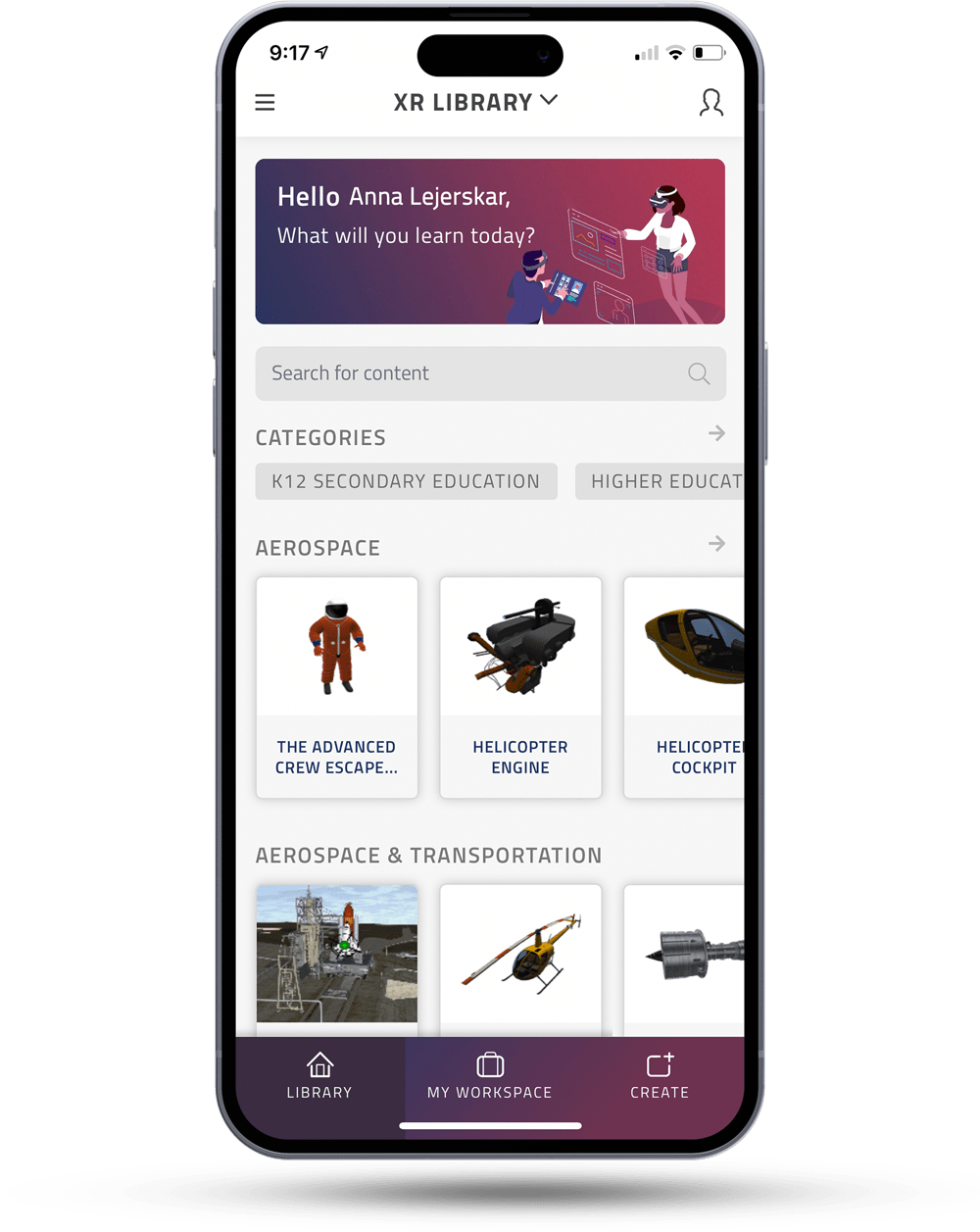Les applications de réalité virtuelle et augmentées pour la sécurité et la défense donnent apportent à ces acteurs privés et publics, l’expérience nécessaire pour former leur collaborateurs, informer le public et adapter leur offre de service.
Unlock thousands of premium 3D assets and applications. Access 20 years of EON’s experience in the EON Vault.
Cost
Training, while important, is a cost center for a business. There is a need to minimize the time and resources spent on training, while also maintaining or improving quality.
Complexity
Technicians need to be proficient and continue to change rapidly as tasks become more complex. Manuals and other sources of information exist, but the worker must know where to look. Also, in looking up the information the trainee or worker is no longer performing the task lowering their overall productivity.
Risk
Often the most important skills and tasks that need practice are the most dangerous ones. With a few exceptions where expensive simulators can be used, companies cannot effectively train for the wide variety of hazardous situations an employee might face over a career.
Quality
Traditional classroom training does not give hands-on experience, nor does it support critical thinking, problem solving, communication and grit that is crucial for learning complicated procedures. Classroom training suffers the same problems that schools face such as boredom and poor classroom habits. Often trainees in more hands-on field learn better by doing than by PowerPoint presentations and classroom lectures.
Difficult To Assess
Traditional evaluation methods, which emphasize classroom performance, are often insufficient in evaluating long term field capabilities as passing a test or evaluation is not the same as putting a skill into practice.
Hands On Training
In most industrial and manufacturing settings, it is difficult to offer hands on training since it is impractical to shut down a production process or individual equipment to offer employees the needed hands on training. Likewise, certain pieces of equipment may be too expensive to duplicate and dedicate solely for training purposes.
Faster Learning
The experiential training provided by Augmented and Virtual Reality security and defense solutions for training give real-time feedback and improve the efficiency of skills transfer, increased knowledge retention, and better captures enterprise knowledge within an organization.
Real-time Contextual Knowledge
With advanced Augmented Reality technology, knowledge directly relevant to the task at the hand can be displayed right in front of a user’s eyes, either for MRO or on-site training, resulting in a higher quality of work and improved training.
Safety
Dangerous or difficult to replicate scenarios can be safely simulated with Augmented and Virtual Reality security and defense applications. This allows trainees to repeatedly practice crucial scenarios while preventing damage to equipment and avoiding bodily harm.
Greater Engagement
Experiential Training through Augmented and Virtual Reality security and defense applications require the trainee to actively participate in the exercise. This results in higher retention rates as this training bypasses boredom and poor classroom habits that accompany traditional training.
Assessment
Trainees are evaluated based on their performance on the relevant work items. This data is transmitted from the Augmented and Virtual Reality security and defense application to a company’s internal record keeping systems for certification and/or administrative action.
Hands On Training
Augmented and Virtual Reality security and defense training allows employees to receive hands on training, but in a virtual environment. These virtual environments mimic production equipment in a very realistic manner. This prevents expensive down time and disruptions in normal operations.











